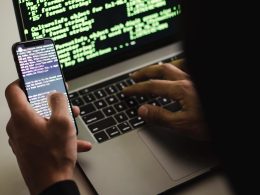As threats to company executives continue to increase, digital executive protection becomes more critical in reducing an organization’s chance of a cyber attack.
What Is Executive Digital Protection?
Executive digital protection (EDP) is a set of measures and practices designed to protect high-profile individuals, such as corporate executives, celebrities, government officials, and other individuals in positions of power or influence, from various digital threats. EDP is a comprehensive approach that includes a range of strategies, tools, and techniques to safeguard an individual’s digital presence, including their devices, online accounts, and sensitive information.
EDP includes a combination of technical and non-technical measures, such as:
- Cybersecurity measures to protect against hacking, phishing, and other cyber attacks
- Secure communication tools, such as encrypted messaging and email services
- Personalized training and education on digital security best practices
- Social media monitoring and reputation management to mitigate risks associated with online activity
- Background checks and risk assessments to identify potential threats and vulnerabilities
- Physical security measures to protect devices and sensitive information
- Personalized security protocols to manage access to sensitive data and ensure secure communication channels.
Why Is It Important To My Organization?
Organizations need to have executive digital protection for several reasons, including:
- Protecting sensitive data: High-profile individuals often have access to sensitive and confidential data related to the organization’s operations, strategies, and financials. Executives are targeted for cyber attacks because of both their proximity to their employer’s information as well as their wealth that they hold. Digital protection measures can help prevent data breaches, theft, and unauthorized access to this sensitive information.
- Maintaining reputation: A security breach or cyber attack can damage an organization’s reputation and credibility. Digital protection measures can help mitigate the risks associated with online activity, including social media usage and harassment, which can harm the organization’s brand and reputation.
- Preventing financial loss: Cyber attacks can result in significant financial losses for organizations. Executive digital protection measures can help prevent financial fraud, ransomware attacks, and other cyber attacks resulting in financial loss.
- Compliance with regulations: Many industries are subject to regulations that require organizations to implement specific security measures to protect sensitive data. Executive digital protection measures can ensure compliance with these regulations and avoid costly fines or legal penalties.
- Protecting high-profile individuals: High-profile individuals are often targets for cybercriminals, hackers, and other threat actors. Executive digital protection measures can help safeguard these individuals’ personal and professional information, ensuring their safety and security. Obligatory personal social media accounts also make it easy for cybercriminals to build a case on executives.
What can happen if my information is on the internet?
If your personal information is on the internet, it can be accessed by various individuals and entities, including cybercriminals, hackers, data brokers, and other malicious actors. This can have several negative consequences, including:
- Identity theft: Cybercriminals can use your personal information, such as your name, date of birth, social security number, and address, to steal your identity and commit fraud. They can use this information to open credit accounts, take out loans, make purchases, and perform other illegal activities in your name. They can also use information like birthdays and social security numbers to defame your reputation and ruin other things like your credit score.
- Financial loss: If your financial information, such as bank account numbers or credit card details, is on the internet, cybercriminals can use this information to steal money from your accounts or make unauthorized purchases. Criminals often steal their victim’s personal information to get money like credit cards or banking data. This can result in significant financial loss and damage to your credit score.
- Reputation damage: If your personal information is on the internet, it can be used to harass or defame you. Malicious actors can use your information to spread false information, embarrass you publicly, or damage your reputation online.
- Spam and phishing: If your email address or phone number is online, you may receive unsolicited emails or messages, such as spam or phishing attempts. These messages may contain malicious links or attachments that can infect your device with malware.
- Stalking or harassment: If your personal information, such as your address or phone number, is on the internet, it can be used to stalk or harass you. This can be particularly dangerous if you are a high-profile individual or have been the victim of domestic violence or stalking.
Executive Digital Protection Resources
Check out the articles below to learn more about personal cybersecurity for executives:
Ways Agency Can Protect You
Agency offers active dark web monitoring, 24/7 active security monitoring & response by U.S. professionals, VPNs, next-gen antivirus/EDR, ID theft coverage, and personal information removal. Agency offers all executives enterprise-grade cybersecurity protection at a fraction of what is currently available.
Agency’s Executive Digital Protection Free Trial
Complete Defense For Employee-Targeted Digital Threats. Personalized Managed Cybersecurity for your company’s highest risk threat surface. Get your free trial of Agency by clicking below:







